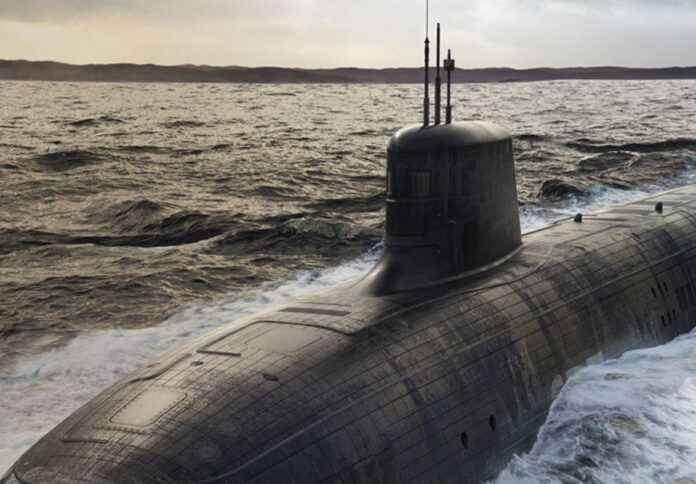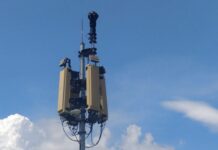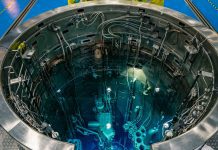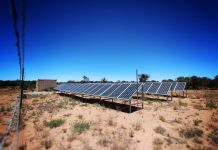
The United States Congress has passed the 2024 National Defense Authorization Act (NDAA), a comprehensive legislation that not only addresses critical aspects of Australia’s nuclear-powered submarine program but also establishes key exemptions for both Australia and the United Kingdom from US defence export control licensing.
At the forefront of the NDAA is the authorisation for the transfer of three Virginia-class submarines to Australia, a development in the US-Australia strategic partnership, the Australian government said in a media release.
This transfer includes two operational submarines and one from the production line, ensuring a seamless transition as Australia progresses toward the delivery of its domestically built SSN-AUKUS submarines in the early 2040s.
Additionally, Australia retains the option to seek congressional approval for the acquisition of up to two more Virginia-class submarines, bolstering its maritime capabilities.
A significant aspect of the NDAA is the authorisation for the maintenance of US submarines by Australian personnel within Australia.
This key provision, integral to the AUKUS pathway, paves the way for increased port visits by UK and US nuclear-powered submarines.
The Submarine Rotational Force West (SRF-West) is set to establish a rotational presence as early as 2027, with the most complex maintenance activity on a US nuclear-powered submarine scheduled at HMAS Stirling in the latter half of 2024.
Furthermore, the NDAA greenlights Australian contractors to train in US shipyards, a move aimed at supporting the development of Australia’s submarine industrial base.
This unprecedented opportunity allows Australian industry workers, in collaboration with APS and ADF personnel, to enhance their skills and qualifications in US shipyards, fostering a robust and collaborative defence manufacturing ecosystem.
A significant stride in enhancing the financial aspects of the alliance is the establishment of a mechanism for the US to accept funds from Australia to boost the capacity of the submarine industrial base, the government noted.
This investment, characterised by Australia as fair and proportionate, aims to expedite the delivery of Virginia-class submarines and complement Australia’s substantial investment in its domestic submarine industrial base.
The NDAA also introduces a national exemption from US export control licensing requirements.
In tandem with the Defence Trade Controls Amendment Bill 2023 introduced by the Albanese Government in the Australian Parliament, this exemption facilitates the seamless transfer of controlled goods and technology between Australia, the United Kingdom, and the United States without the need for an export license.
This significant development streamlines defence trade and marks a notable achievement for the Australian Defence Industry.
Additionally, the NDAA directs expedited decision-making for Foreign Military Sales and exports not covered by the national exemption.
This includes a pre-clearance list and an expedited decision process for Foreign Military Sales, ensuring a maximum of 45 days for decisions on exports not covered by the national exemption.
This expeditious approach is set to accelerate the delivery of critical defence capabilities.
Deputy Prime Minister Richard Marles conveyed his appreciation for the unprecedented support provided by the US Congress in passing the National Defense Authorization Act.
He highlighted the significance of the legislation, emphasising its role in facilitating the transfer of submarines and streamlining export control provisions.
“AUKUS is a game-changer for Australia, the United Kingdom and the United States – the legislation passed by US Congress will enhance our individual and collective capacity to support security, peace, and prosperity in the Indo-Pacific,” Marles noted.
Meanwhile, Minister for Defence Industry Pat Conroy highlighted the unparalleled scale, scope, and significance of Australia’s alliance with the United States.
“The Congressional approval of the National Defense Authorization Act brings us closer to realising a generational opportunity to ensure Australia is best equipped to not only protect Australians and their interests but to also support stability and security in the Indo-Pacific,” Conroy remarked.
Concluding the monumental legislative changes, Australia and the United Kingdom are now formally added to Title III of the US Defense Production Act.
This addition enables the US Government to incentivise its industrial base, expanding the production and supply of critical materials and goods.
For Australia, this inclusion opens new opportunities for domestic industries to compete directly for business with the US Government.



















